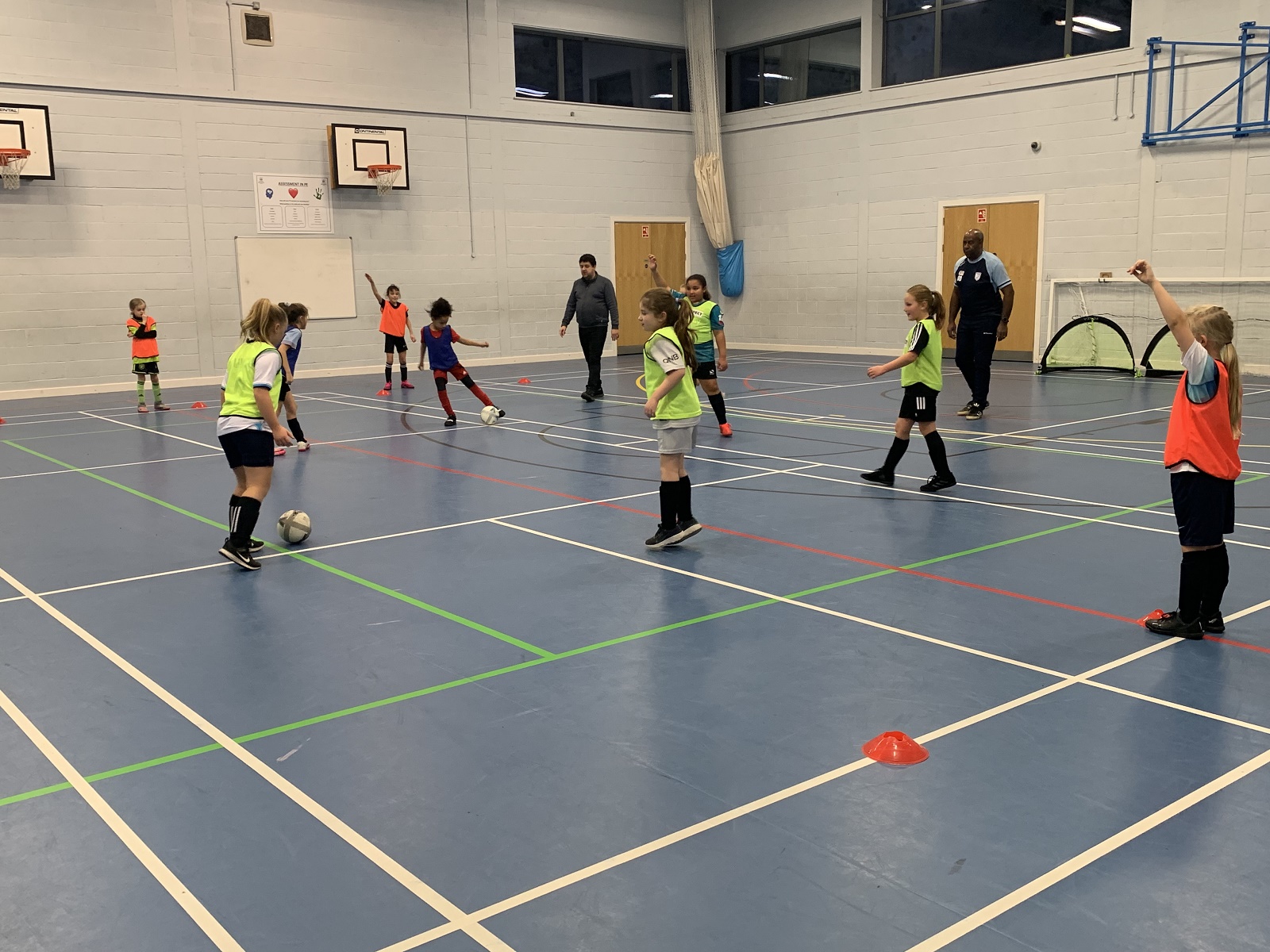Girls football is now experiencing a revolution at the grassroots level as girls football gains momentum. Across the world, young girls are lacing up their boots, stepping onto the pitch, and embracing the beautiful game with passion and skill. Girls’ football at grassroots level is not just about playing a sport; it’s about empowering young athletes, breaking gender stereotypes, and fostering a sense of community and inclusivity.
Historically, girls’ participation in football was limited due to societal norms and gender stereotypes. However, in recent years, there has been a significant shift in attitudes towards girls’ participation in football. Thanks to the efforts of organizations, such as FIFA, UEFA, and various grassroots football clubs, girls’ football is now gaining recognition and support like never before.
One of the key factors driving the growth of girls’ football at the grassroots level is the increased visibility of female footballers. The success of female footballers, both at the national and international levels, has inspired young girls to take up the sport. Female role models, such as Milly Bright, Alex Greenwood, and Mary Earps, have become symbols of empowerment for young girls, showing them that they too can excel in football and pursue their dreams.
Another crucial factor contributing to the rise of girls’ football at the grassroots level is the availability of more opportunities for girls to play. Many grassroots football clubs, including ourselves at Sedgley and Gornal United, now offer girls-only teams, providing a safe and inclusive environment for girls to develop their skills and enjoy the game. These teams are often coached by female coaches who serve as mentors and advocates for young female players, providing guidance and support on and off the field.
Girls’ football at grassroots level is not just about the physical aspect of the sport; it also provides valuable life skills that can benefit young athletes in various aspects of their lives. Football teaches teamwork, discipline, leadership, communication, and resilience, among other important qualities. Through football, girls learn to work together as a team, set goals, and overcome challenges, building their confidence and self-esteem. These skills are transferable and can have a positive impact on their academic performance, career prospects, and personal growth.
Furthermore, girls’ football at grassroots level promotes gender equality and challenges traditional gender roles. It breaks down the stereotype that football is only for boys and encourages girls to pursue their passion for the sport without limitations. It provides a platform for girls to express themselves, showcase their talent, and compete at the same level as boys. This challenges societal norms and promotes a more inclusive and diverse football culture.
Moreover, girls’ football at grassroots level fosters a sense of community and camaraderie. It brings together girls from diverse backgrounds, cultures, and abilities, creating a supportive and inclusive environment where they can make friends, build relationships, and develop social skills. It promotes cultural exchange, respect for diversity, and encourages girls to be inclusive and accepting of others, fostering a sense of belonging and unity among young athletes. It also develops teamwork which is a critical skill both in school and later on in the workplace.
Despite the progress made by the FA in recent years, girls’ football at grassroots level still faces challenges. One significant challenge is the lack of funding and resources compared to boys’ football. Many grassroots clubs struggle to provide adequate facilities, equipment, and coaching for girls’ teams, limiting their opportunities for development and competition. There is a need for increased investment in girls’ football, including funding, infrastructure, and coaching, to ensure that girls have the same opportunities as boys to excel in the sport.
Another challenge is the persistent gender bias and discrimination that girls face in football. From unequal pay to limited media coverage, female footballers continue to face barriers to their participation and advancement in the sport. It is crucial to challenge these biases and promote gender equality at all levels of the football ecosystem, from grassroots.
At Sedgley and Gornal United FC we are actively promoting the increase in participation across all age groups in the womens game. We run two weetabix wildcats centres serving as an introduction to girls only football in a safe and fun environment run by female coaches, we currently run girls teams in the SDYFL at U9’s and U11’s and will be actively increasing these in 2023-24 to include U7, U8’s and potentially U9’s with funding in place. We also run a successful open age womens team playing in the west midlands regional womens league. Further developments in 2023-24 will be womens veterans football (Age 35 years and over) and a walking football provision for women over the age of 40.





